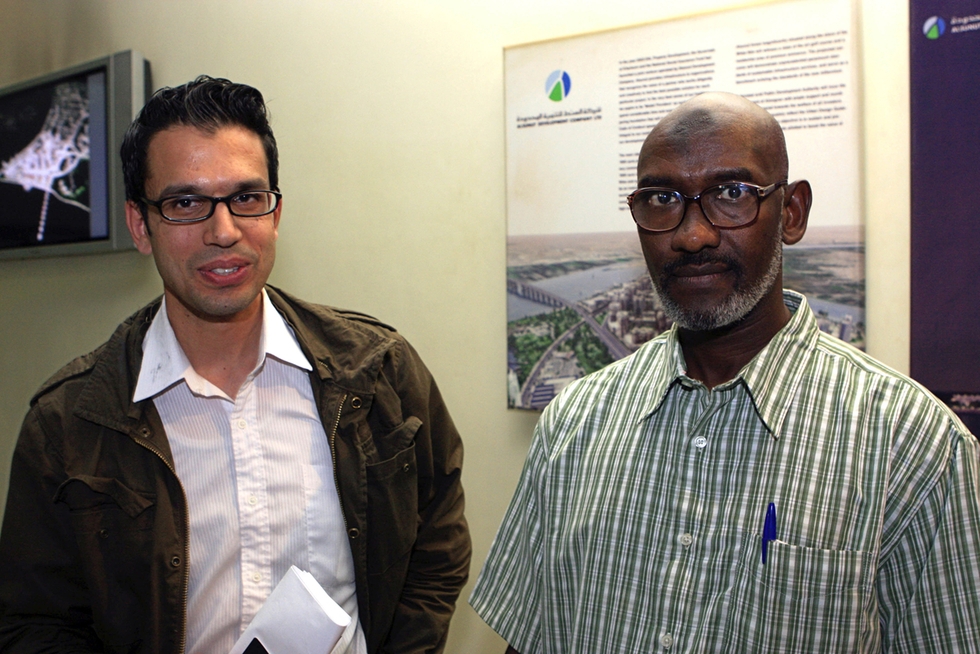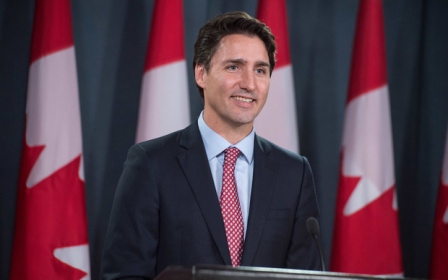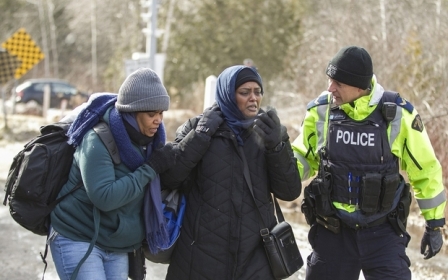Trudeau must resolve case of Canadian tortured in Sudan: Amnesty

MONTREAL, Canada – Rights groups have called on Prime Minister Justin Trudeau to take action to provide a just resolution to the case of a Canadian man who was detained and tortured in Sudan with the alleged involvement of Canadian intelligence officers.
The federal government pulled out of mediated negotiations this week to reach a settlement in a $21.5m lawsuit brought by Abousfian Abdelrazik, who was detained in Sudan in 2003.
Alex Neve, head of Amnesty International Canada, said on Tuesday the organisation was “deeply disappointed” by the Trudeau government’s decision.
“Given the prolonged and persistent injustices at play and the unconscionable refusal of the government to even commence negotiations, it is clear that intervention from the prime minister is now urgently required to end this years-long travesty of justice,” Neve said in a statement.
The prime minister’s office referred Middle East Eye’s request for comment to the office of Canada’s Minister of Public Safety, Ralph Goodale.
Ministry spokesperson Scott Bardsley said in a brief email that the federal government “does not comment on settlement negotiations or ongoing court matters”.
Lawsuit alleges Canada acted in ‘bad faith’
The Sudanese authorities first detained Abdelrazik – who was accused of ties to terrorism, an allegation he has always denied – in 2003 while he was in the country to visit his ailing mother.
He was subjected to a series of human rights violations in Sudan, including torture, Amnesty said.
Canadian intelligence agency (CSIS) officials also provided Sudanese interrogators with questions to ask Abdelrazik, the human rights group reported, and later impeded Abdelrazik’s access to Canadian consular staff in Sudan and his return to Canada.
“Evidence clearly indicates that CSIS provided questions to Sudanese interrogators, despite the use of extensive physical and psychological torture, arbitrary arrest and solitary confinement in that country’s prisons,” Amnesty said.
Evidence clearly indicates that CSIS provided questions to Sudanese interrogator
- Amnesty International
In total, Abdelrazik – whose name appeared on a UN Security Council blacklist in 2006 – spent nearly six years imprisoned, under house arrest and in exile from Canada.
Abdelrazik, who is a resident of Montreal, was finally able to come back to Canada in 2009 after a court ordered the Canadian government to facilitate his return.
He filed a lawsuit against the federal government shortly thereafter, seeking compensation and an apology.
In his statement of claim, Abdelrazik says Canadian officials took action that harmed him in Sudan, “including arranging for his arbitrary imprisonment by Sudanese authorities, encouraging or condoning his torture … and actively obstructing his repatriation”.
“The defendants acted in a bad faith and callous manner at every turn, result in significant physical and psychological harm,” states the lawsuit, which names Canada’s former Foreign Affairs Minister Lawrence Cannon as personally responsible.
After the failure of mediated talks, opening statements in the case will now be heard in Canadian federal court in September, CBC News reported.
Similar cases
This isn’t the first time Canada has faced civil litigation for its alleged involvement in the torture of Canadian citizens abroad.
Ottawa apologised and paid an $8.3m settlement to Omar Khadr, a former child soldier who was detained at the US-run prison facility in Guantanamo Bay, last year.
Khadr’s lawsuit accused the government of violating his rights as a Canadian citizen.
The government also apologised and paid nearly $25m to three Canadian men who were detained in Syria between 2001 and 2003.
Abdullah Almalki, Ahmad Abou-Elmaati and Muayyed Nureddin were subjected to torture by Syrian interrogators after Canadian officials flagged them as having ties to terrorism.
On Tuesday, Abdelrazik’s lawyer, Paul Champ, accused the Trudeau government of not reaching a resolution because of feared “political blowback” like that experienced after the Khadr settlement, the Canadian Press reported.
“It’s been a long road to justice,” Champ said, as reported by CP.
“He is looking forward to a trial so he can finally face the Canadian officials who sat behind their little desks in Ottawa and destroyed his life.”
New MEE newsletter: Jerusalem Dispatch
Sign up to get the latest insights and analysis on Israel-Palestine, alongside Turkey Unpacked and other MEE newsletters
Middle East Eye delivers independent and unrivalled coverage and analysis of the Middle East, North Africa and beyond. To learn more about republishing this content and the associated fees, please fill out this form. More about MEE can be found here.




